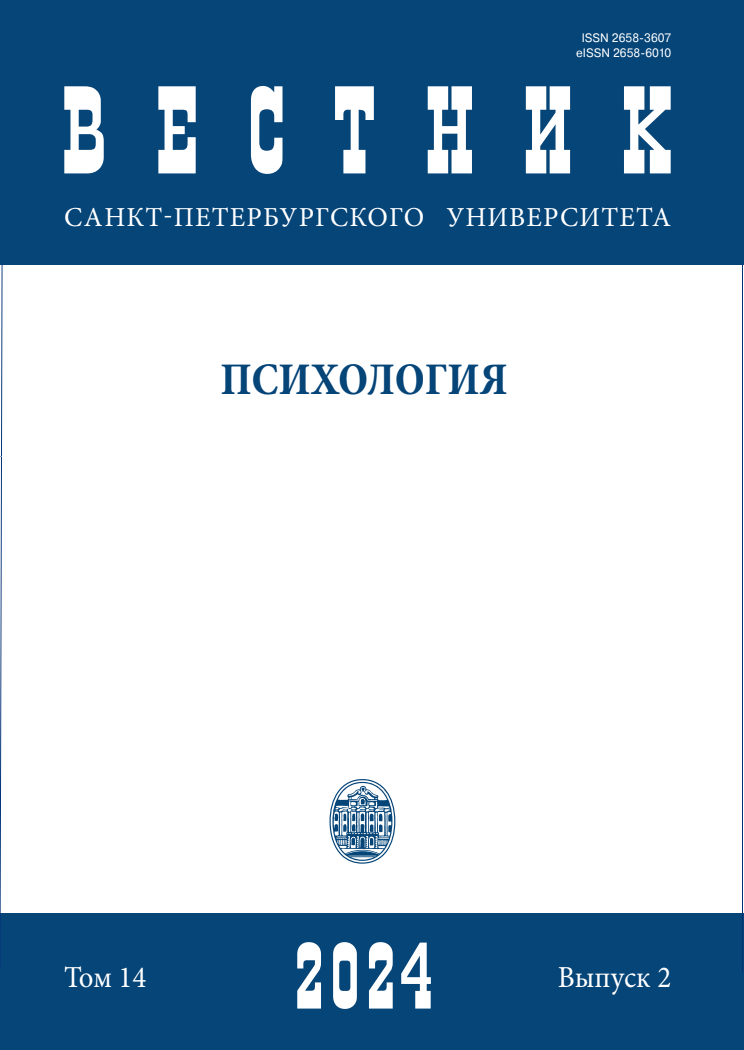The factor of emotional non-acceptance of the disease in patients addicted to synthetic cathinones
DOI:
https://doi.org/10.21638/spbu16.2024.208Abstract
Recently, synthetic cathinone addiction has spread globally, particularly among youth, due to the popularity of “club” drugs and stimulants. The patient’s motivation to quit psychoactive substances is crucial for effective treatment and rehabilitation. However, motivation for treatment is hindered by anosognosia, the inability of addicts to recognize their condition. Among the aspects of anosognosia, emotional non-acceptance of the disease is significant. The aim of the study is to identify socio-demographic and clinical parameters that are associated with emotional nonacceptance of the disease in patients with addiction to synthetic cathinones to determine psychotherapeutic targets of significance in the construction of rehabilitation programs. Based on the “Emotional non-acceptance of the disease” scale from the drug anosognosia questionnaire developed in 2020, groups of individuals with high and low scores were formed. These groups of patients were compared according to several clinical and socio-demographic parameters. Based on the conducted study, the significance of such factors as: presence of children, service in the army, craniocerebral trauma in the anamnesis and others. Thus, a high level of family support, sufficient material condition of the family and positive attitude of parents to the patient, as well as consistency between the roles of “parent” and “drug addict” are factors that contribute to the emotional acceptance of the disease (drug addiction). At the same time, the influence of clinical characteristics, such as the severity of residual-organic mental changes, personality transformation due to addictive behavior, can hinder emotional acceptance of the disease.
Keywords:
syndrome of dependence on synthetic cathinones, attitude towards the disease, anosognosia, emotional acceptance of the disease, socio-demographic and clinical parameters
Downloads
References
References
Downloads
Published
How to Cite
Issue
Section
License
Articles of "Vestnik of Saint Petersburg University. Psychology" are open access distributed under the terms of the License Agreement with Saint Petersburg State University, which permits to the authors unrestricted distribution and self-archiving free of charge.




